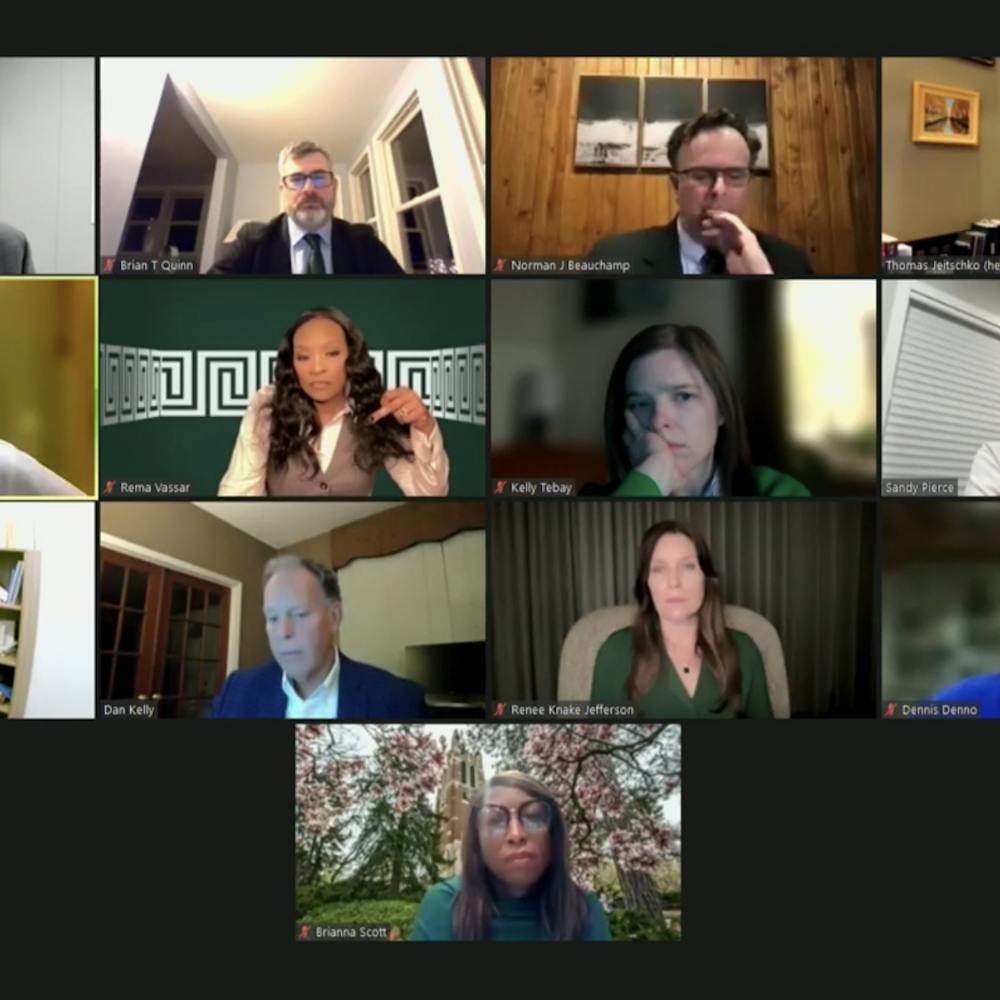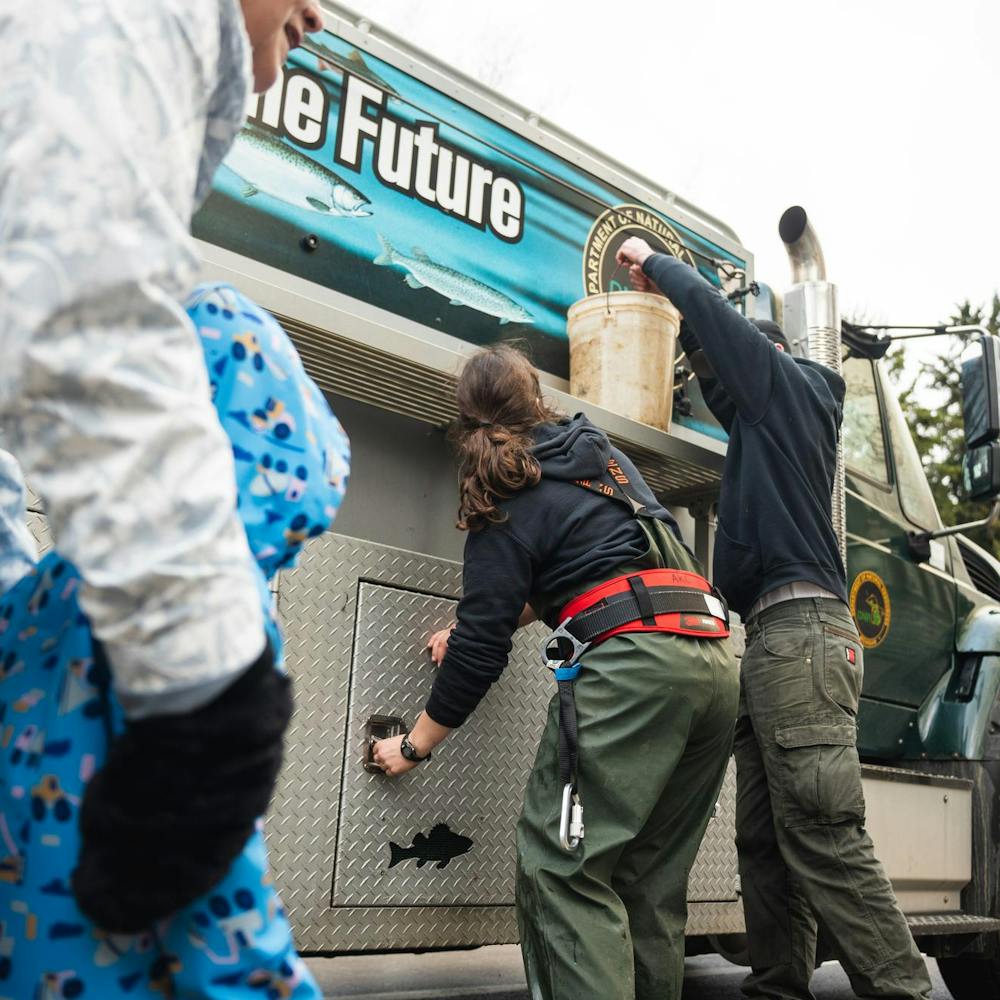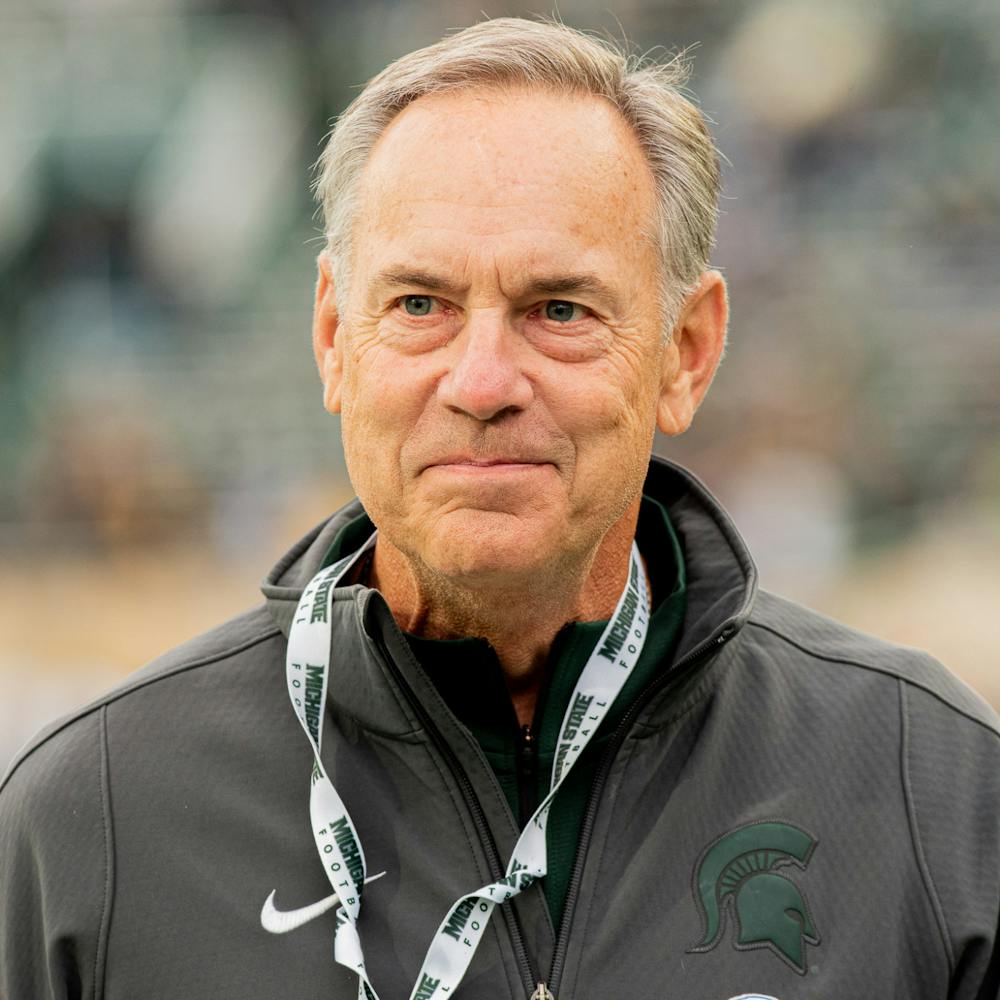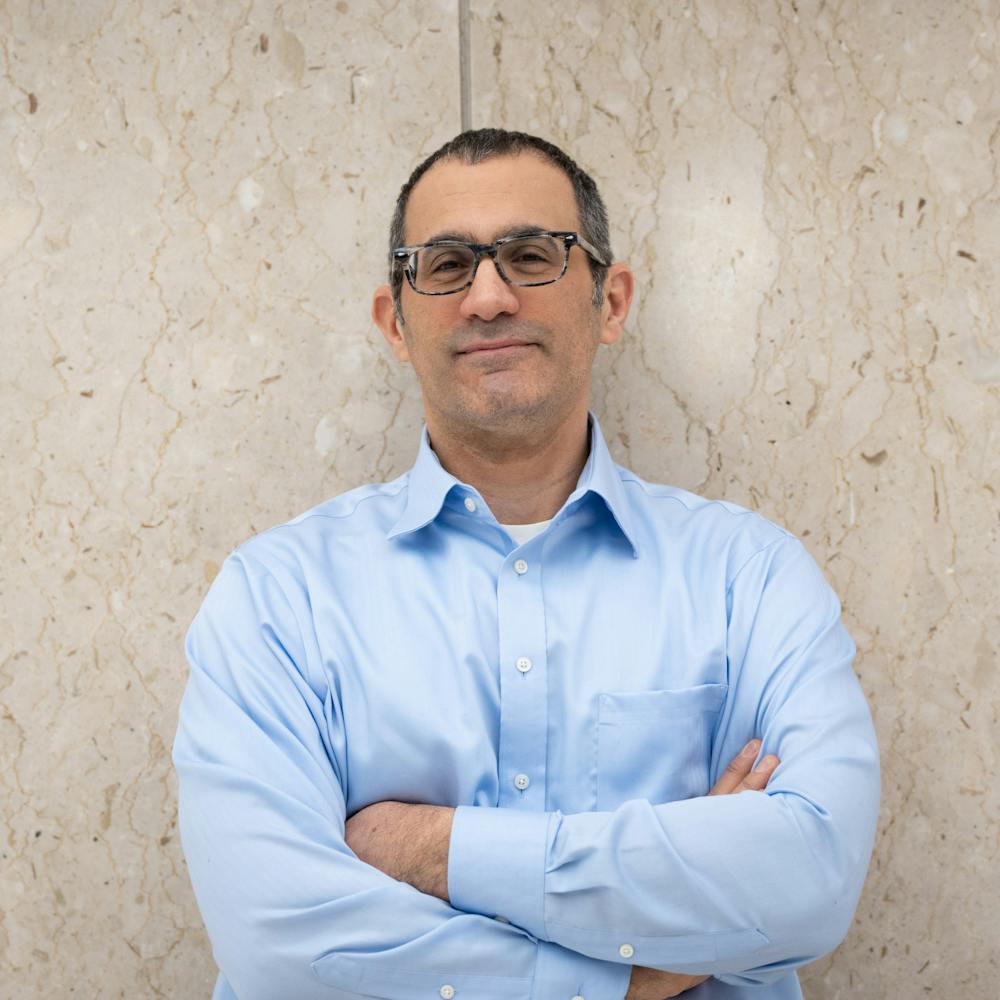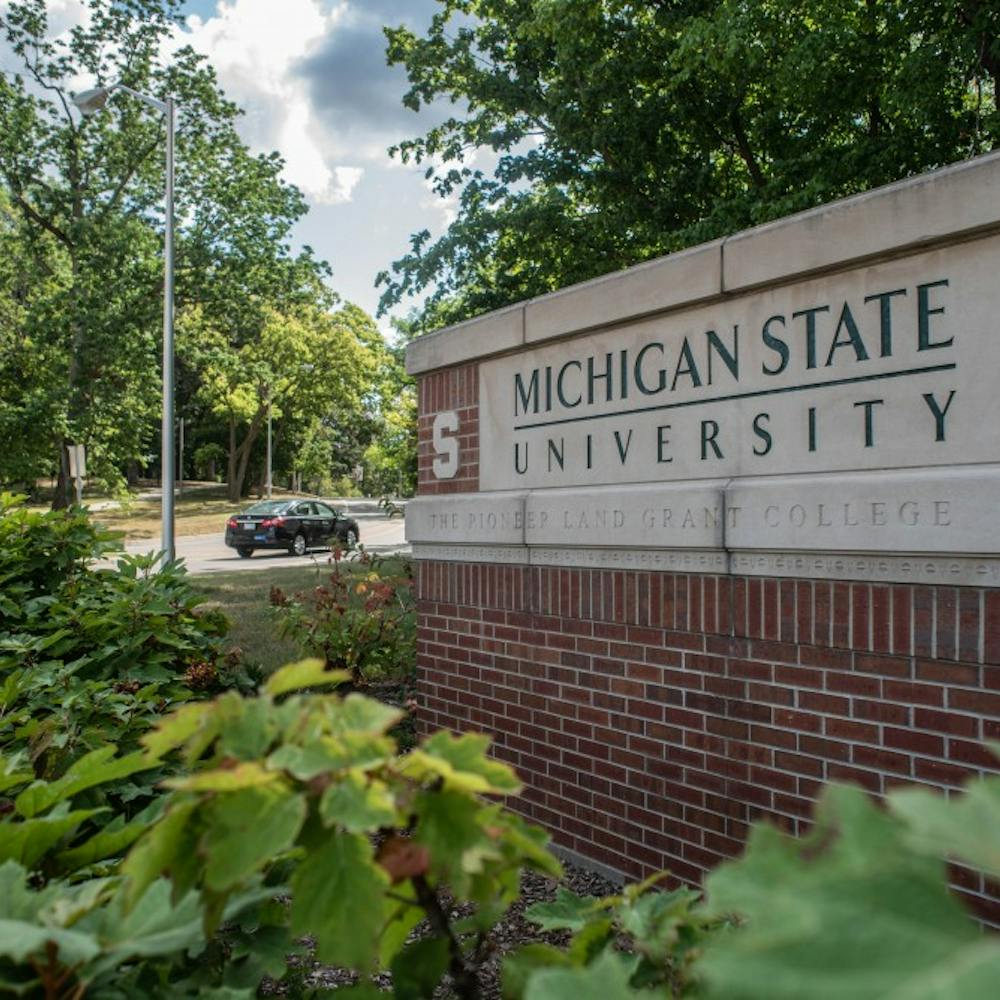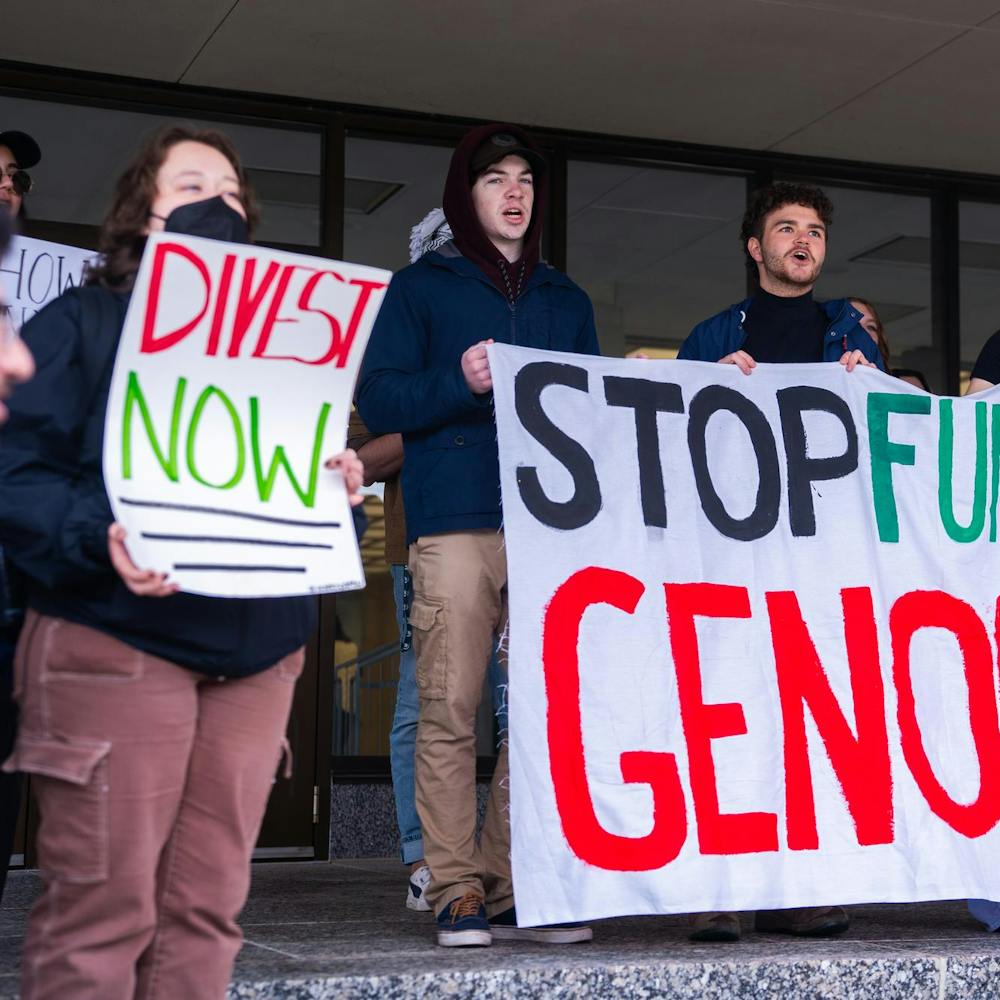“It’s not the type of nightmare where you wake up and you say, ‘OK, I’m awake now.’ It’s the type where you look to see where you’re at. It’s so real, you feel like you’re actually there. It’s difficult to experience; it’s even more difficult to have to relive it,” said Flynn, 27.
A veteran of the war on terror, Flynn is one of many Americans who returned from military service about three years ago carrying memories he can’t close out. He walks with a slight limp, injured while overseas. But it’s not the physical wounds that bear the most pain; it’s dealing with reminders of war, the struggle with post-traumatic stress disorder.
It was eight years ago that Flynn decided to serve his country, having been marked by the events of the Sept. 11, 2001, terrorist attacks.
Flynn is among many Americans who have taken part in the wars in Afghanistan and Iraq and struggle with consequences of the attacks and the wars that followed.
“It’s both physical and mental,” said Todd Greenman, public affairs officer for Battle Creek Veterans Affairs Medical Center. “Many of them come back different people from when they went over there.”
Trapped between two worlds
Flynn, who enlisted in the military in February 2002 because of what happened Sept. 11, has a 15-month-old daughter who is the world to him, and a wife who reaches over to tell him it’s OK after a nightmare brings him back into the realities of war. He also bears a tattoo of the soldier’s burial to remind him of the friends who didn’t make it home. Flynn now has the friendship of the soldiers from his unit, who he calls his brothers, and he has a tattoo of the World Trade Center with the words “Never Forgotten” because he says he doesn’t want to forget the people he served with or his reason for joining the military.
Even with an ample amount of support, he wishes he could forget the pain that accompanied the seven months and six days he spent overseas. Flynn, who was diagnosed with PTSD and receives government compensation for it, says the painful memories come on suddenly and without warning, when he’s not thinking about anything at all.
“I don’t want to lose these memories because I always want to remember the people who lost their lives,” he said of the times with his comrades and the reason he enlisted.
But the grim toll of war and loss of people who meant everything to him are things he wishes he could forget.
“When you’re holding someone’s kidney, trying to give CPR, and you know he’s not going to make it and you’re just trying to make him comfortable. When you smell human flesh, that smell never leaves. I smell it every day. … And I wish I could forget that. That’s just bits and pieces of it.”
PTSD is a psychiatric and physiological response a person can have after being exposed to a traumatic or life-threatening situation, said Joanne Riebschleger, a professor in MSU’s School of Social Work. The disorder, which affects about 8 percent of the adult population at some point, occurs when a person feels helpless, terrified or fearful and horrified after experiencing trauma.
Data from the United States Department of Veterans Affairs showed that the disorder was the fourth most prevalent service-connected disability for veterans who received government compensation at the end of 2008, with 344,758 recipients.
People who have PTSD might feel helpless and fearful, like they lack control of their own lives or their own body, Riebschleger said. It can strike in the form of nightmares, flashbacks or feelings of withdrawal, she said.
For Flynn, the disorder comes in the form of nightmares, feelings of anger and extreme discomfort around Afghani or Muslim people, whom he said he was trained to distrust and see as enemies. His discomfort forces him to the back row in one of his classes at Lansing Community College, of which the professor is an Afghani man.
“It goes back to that thing where the government programs your mind to think one way and then they come back and say, ‘It’s not OK to think that way,” he said. “It’s not a switch you can flip. … With PTSD, it doesn’t matter where you’re at or who you’re with, whether you’re at church or a business, your thoughts are going to come out.”
Flynn, who is majoring in social work and hopes to work with children, copes with the disorder by attending counseling and by spending time with his family. Without his family, he said he doesn’t know what he would do: whether he would contemplate killing himself or someone else.
“With his pain, the pain he has every day, he still functions every day to do stuff with his daughter,” said his wife, Jaclyn Flynn, who feels helpless because he often cannot talk to her about his experiences. “He loves his daughter. I know he loves me, but she’s like the world.”
Support student media!
Please consider donating to The State News and help fund the future of journalism.
Two tours, then to MSU
Shane Stierley, a 26-year-old MSU supply chain management junior, has a light scar on the bottom of his foot and a black bracelet on his wrist to honor a 24- or 25-year-old woman from his unit who died in Iraq. Stierley, who spent seven years in the military, did two tours in Iraq and came home with a brain injury stemming from shrapnel that went through his head.
Caused by a blast from a suicide bomber that went off about 50 feet from him, the injury left him with a bruise in his brain and the inability to carry on a conversation at one point, he said. He was sent home early on a medical aircraft.
Stierley said with better technology, soldiers are able to survive incidents that would have killed them in earlier years.
“A high number of people going to war are coming back with issues,” he said. “We’re able to take more and be closer to blasts then we were ever able to. You would’ve been dead in the blast that I was in if there were no concrete walls around us.”
More and more veterans have come to Veterans Affairs with traumatic brain injuries, making it one of the biggest things the Battle Creek clinic has helped soldiers deal with, Greenman said. Although veterans often have to deal with the injury for the rest of their lives, they are offered compensation through the government and services from the Veterans Affairs, he said.
Today, Stierley said studying, which was once “a breeze,” takes twice as much focus for the same results.
“Because of any injury, you have to overcome it and make different ways to do the same thing you did really easily,” said Stierley, who also faces sudden shooting pains up his leg from shrapnel that went through his foot and severed a nerve.
But with physical injuries, rather than mental illnesses, he says he guesses he was blessed. When he is confronted by unpleasant thoughts, he can change his mind, while people suffering from PTSD relive negative experiences on a daily basis, he said.
Stierley looks for the good in bad situations and says he wears the bracelet, something other veterans might not be able to handle seeing daily, to remind him of what he’s experienced in his 26 years of life, and to honor the life of his friend.
“There is, believe it or not, good in every situation,” he said. “In this situation (of her death), maybe there isn’t good, so you just have to accept the bad.”
Overseas, he said he was comforted when he saw “normal,” everyday life — children playing soccer, women hanging up laundry, men sitting down for meetings — happening in the time between fighting in the war.
“It helps you realize there are really human people there,” he said. “With the atrocities that go on, someone committing suicide, you have to dehumanize yourself to deal with some of it. … Even though you’re sitting, waiting for something bad to happen, within those waiting periods you get to see normal — well, by our standards normal — things happen. In that perspective, that makes it easier.”
At the same time, seeing the enemy as people made seeing people drive trucks into buildings, when he knew women were inside, more difficult.
Stierley came home with memories of the soldiers who died, including a 19-year-old “little kid” who died after being shot through the head. Relating to his peers sometimes is challenging for him, as it is impossible to convey the experience of fighting in a war, he said.
“There’s no way to describe war, no way to describe the things that happened, the way you felt,” Stierley said.
Remembering, honoring
For veterans of the wars in the Middle East, such as Stierley and Rick Flynn, the anniversary of Sept. 11 is not simply a national tragedy, but a day of great personal significance.
“It’s that underlying tone that because of an incident eight years ago, I lost friends, I was injured, people are over there,” Stierley said. “It’s more of a feeling. Sept. 11 is a feeling to me — an uneasy feeling.”
To Rick Flynn, the events of Sept. 11 represent a reason to fight in a war, to risk his life and to struggle with the issues that plague him today. The day is not something he wants to forget and joining the war is not something either he or Stierley regret.
“I think my whole philosophy on this is whether you were in Iraq, or you knew somebody that died in the towers, or knew a soldier that was in Iraq, it’s really important to never forget,” Stierley said. “I think people push it to the back of their mind so they don’t have to deal with the negative thoughts. It’s better to remember and honor.
“There have been people that have given their lives to this cause, to make sure things like this don’t happen again. It’s important to remember these people, because if we don’t, they will have sacrificed their lives for absolutely nothing.”
Discussion
Share and discuss “A constant battle” on social media.

